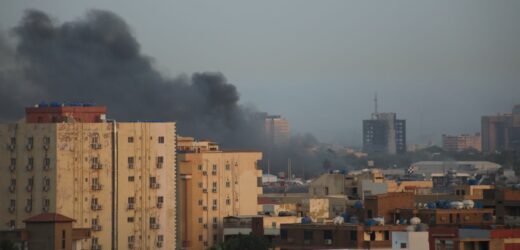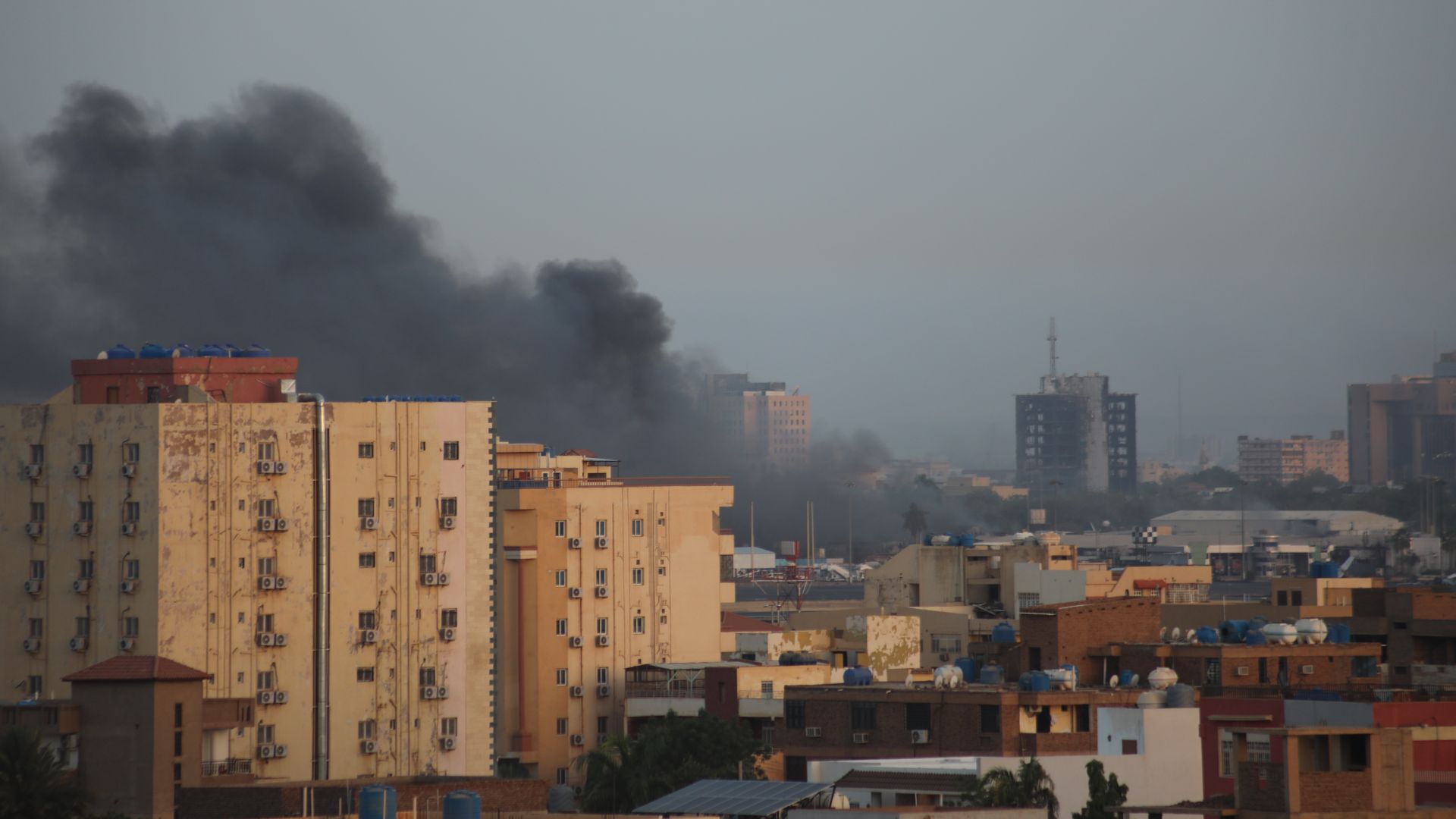Smoke rises during clashes between the Sudanese Armed Forces and the paramilitary Rapid Support Forces (RSF) on on April 21. Photo: Anadolu Agency via Getty Images
Secretary of State Tony Blinken announced on Monday that the Sudanese military and Rapid Support Forces have agreed to a 72-hour cease-fire beginning at midnight local time.
The big picture: Previous attempts at a temporary cease-fire have failed. But there are hopes among the international community that if a truce can be implemented and holds, it can be the basis for negotiations for a permanent end to the fighting.
Behind the scenes: The U.S. gave the two warring parties in Sudan a new proposal for a cease-fire plan on Sunday, according to two sources with direct knowledge of the proposal.
- Blinken said in a statement on Monday that the agreement on a cease-fire was reached “following intense negotiation over the past 48 hours."
- He added that the U.S. will coordinate with regional and international partners and Sudanese civilian stakeholders to create a committee to "oversee the negotiation, conclusion, and implementation of a permanent cessation of hostilities and humanitarian arrangements in Sudan."
What they're saying: “The United States urges the Sudanese military and RSF to immediately and fully uphold the ceasefire…We will continue to work with the Sudanese parties and our partners toward the shared goal of a return to civilian government in Sudan," Blinken said.
- The RSF said in a tweet that it agrees to the U.S. cease-fire plan in order to open humanitarian corridors and allow civilians to reach hospitals and get food and to further allow evacuation of foreign diplomats.
- The RSF said it is ready to cooperate and coordinate the evacuation of foreign diplomats and nationals. "We commit to uphold the cease-fire during the 72-hour period and we warn against violations of the other side," the RSF said.
- The Sudanese military did not immediately comment on Blinken's announcement.
Catch up quick: The recent fighting in Sudan, which started over a week ago, erupted as growing tensions between Army chief Gen. Abdul Fattah al-Burhan and Rapid Support Forces (RSF) head Gen. Mohamed Hamdan Dagalo — known as Hemedti — boiled over.
- The pair led a military coup in October 2021, derailing the transition to democracy that began after the ouster of long-time ruler Omar al-Bashir in a popular uprising four years ago.
- But disagreements between the two generals began to rapidly escalate, particularly after the military, RSF and a coalition of civilian parties last December signed a preliminary political deal in which the military agreed to hand over power.
- Hundreds have been killed and thousands have been injured in the recent fighting. Some parts of the country are suffering a humanitarian crisis that the UN has called in recent days "catastrophic."
- Several countries, including the U.S., evacuated their diplomatic staff and shuttered their embassies over the weekend due to the fighting, which is taking place in Khartoum and other cities across the country. Many countries have also started to evacuate their nationals.
Go deeper: Israel offers to host warring Sudanese generals for talks
Source: Read Full Article



